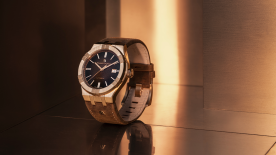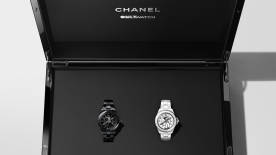It’s true, what they say. You don’t know what you have until it’s gone. The absence of physical watch fairs and opportunities to gather in person has diluted the bonds of our passionate little community. The decreased opportunity to have open, unstructured and spontaneous conversations about watches has parched the landscape of enthusiast groups.
Recently I was invited to be part of a new social app that facilitates this kind of open discussion based on various topics of interest. It’s called Clubhouse and it’s currently in beta testing mode, so rollout has been very limited so far, but what really got my attention is how it replicates the live, dynamic feel of a physical get-together. Some have described it as collaborative podcasting; others said it reminded them of the excitement that Instagram created in its early days. I’m not particularly concerned with identifying what it is, but I am fascinated by what it does, which is bring people together in a way that I haven’t experienced since the beginning of 2020.
Here’s the thing. When lots of passionate people get together in one place, you have the problem of identifying who gets to speak and who doesn’t. Collectors and enthusiasts are notoriously opinionated about the values and codes that they think should represent their community. They tend to believe that they should decide whose voice gets heard. Me, I think everyone should have a turn. That’s what we stand for over here at WorldTempus anyway. The clue’s in the name. We’re called WorldTempus, not Closed-Elite-VIP-Rich-People-Only-Tempus. Everyone has an equal chance to participate and be represented. Isn’t that the whole point of any community?
Obviously I’m not saying that community discussions should be a free for all. You get the most benefit out of these sorts of exchanges when there are some basic guidelines that are well regulated. But is there really a need to exclude people on principle?
I have a friend who owns only a handful of pieces, but is extremely knowledgeable about historical clockmaking techniques. I have another friend who’s been very successful professionally and has managed to acquire a large number of extremely high-end watches based on nothing more than personal aesthetic taste, with zero pretensions to deep horological or technical understanding. There are some out there who will say that people who haven’t invested their own money in watches shouldn’t have a say in community discussions; others will say that the wealthy guy without any horological education doesn’t have an opinion worth listening to.
From where I’m standing, I can kind of understand why people would think like that. But I also think they are profoundly mistaken. Would you dismiss the thoughts and opinions of an art scholar just because he doesn’t have a house full of Warhols and Rembrandts? Would you ignore the advice of a seasoned collector about buying the right thing at the right time just because he doesn’t understand exactly how a tourbillon works? Everyone has something different to bring to the table. Having open and diverse discussions in good faith is the best way to create a thriving community.
The rules are simple. Talk about what you know; ask about what you don’t. Be prepared to share and learn at the same time. This applies to any social network, any kind of forum discussion, any kind of online or offline exchange. There’s no such thing as a community without communality.




